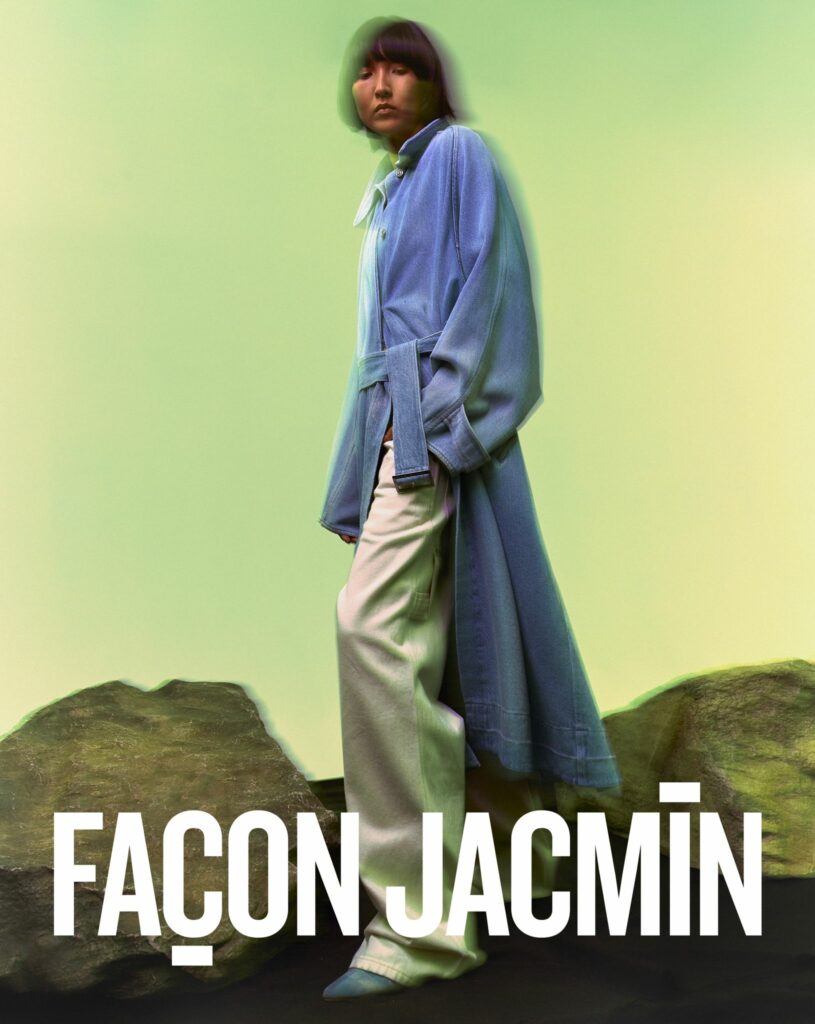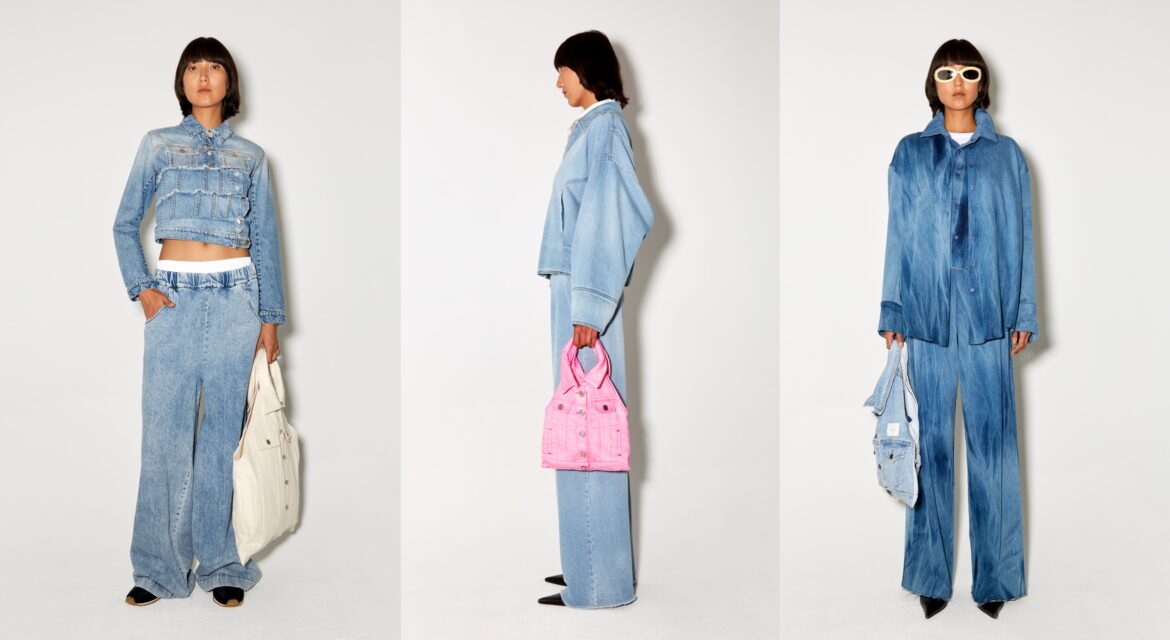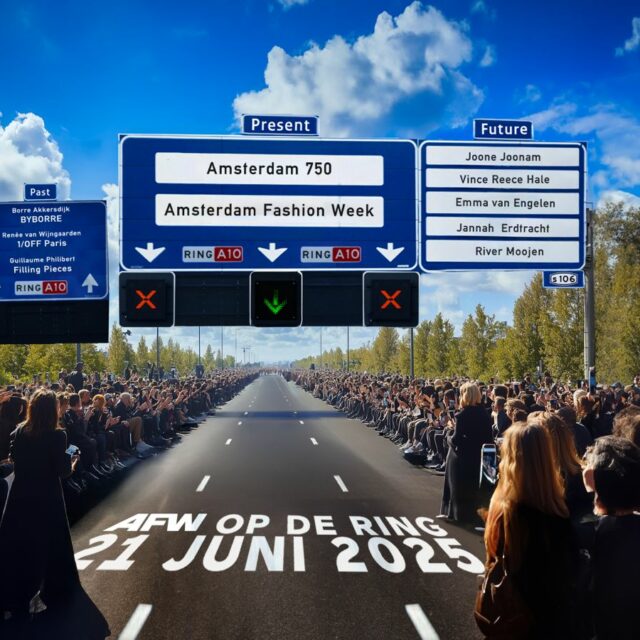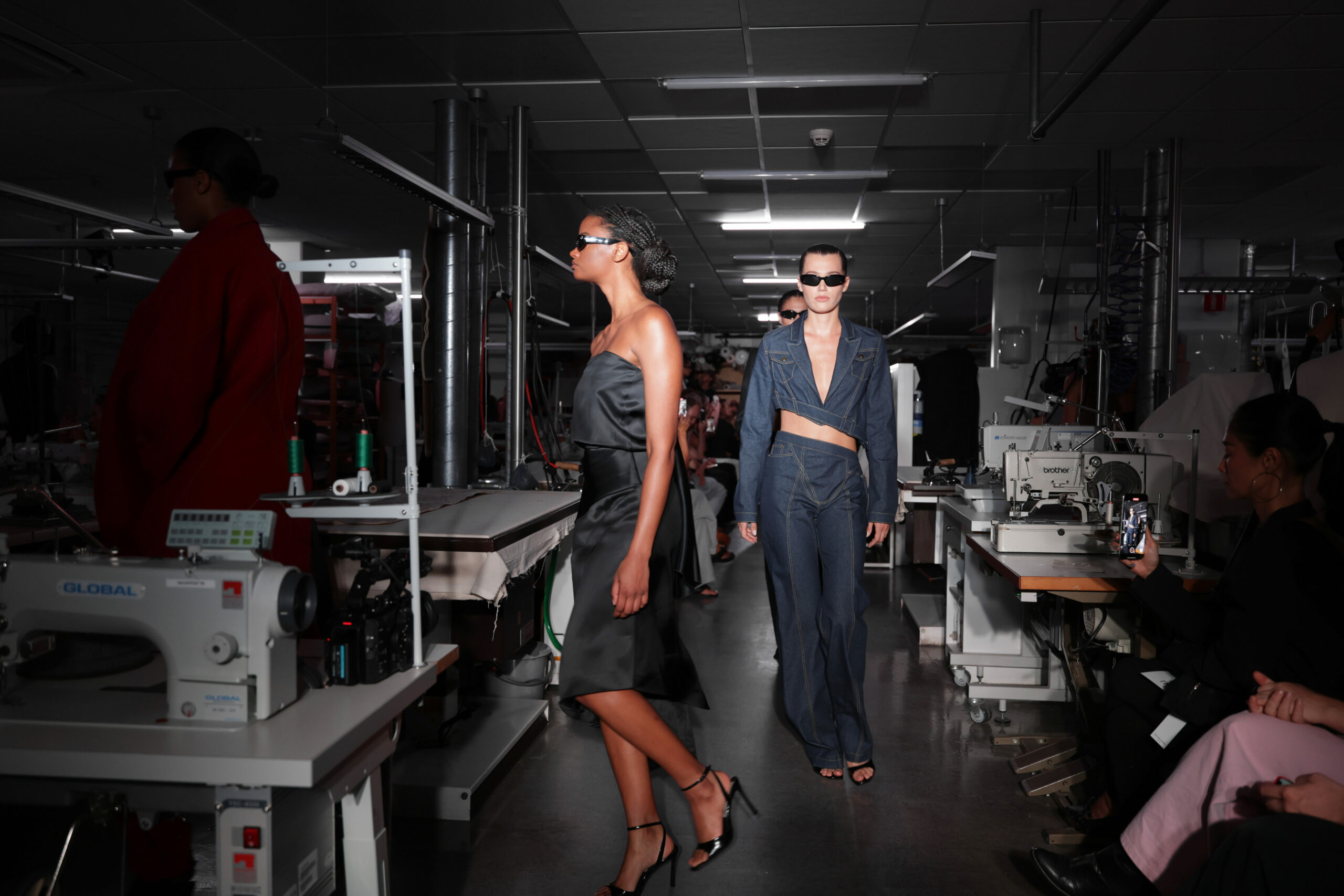Founded by Belgian twin sisters Alexandra and Ségolène Jacmin, FAÇON JACMIN is an eco-conscious wear label that combines Belgian design identity elements with denim innovation. Being a definite front runner regarding the latter, we discuss the ways in which FAÇON JACMIN ensures a sustainable design practice and delve into how it managed to devour the international denim market.
From a mobile boutique to a storefront in one of the most vibrant streets in Antwerp and selling points all over the world; could you tell me the story of how it all started?
Ségolène: “I previously worked in a strategic consulting firm, navigating in a very tough corporate world. I lacked creativity in my life, which surprised me as I envisioned a fairly rational and mathematical path for myself. Entrepreneurship has always been something I was interested in and that’s how I came up with the idea of launching something that is creative in its nature. Having no previous experience in creative fields, I noticed that I needed my sister. She studied fashion in Brussels, moved to Paris and stayed there. We had chosen two separate paths and subsequently had two fairly different lives before FAÇON JACMIN. I must have suggested it to her two or three times, the idea of working together and creating a fashion brand. Then out of the blue on Christmas Evening, she came to me with the concept and the first drawings. She had been silently thinking about it all this time, and also felt the urge to work for herself again. We dove in about six years ago. I started with a mobile boutique, an old-timer with a mirror and a wardrobe. Every weekend, I drove to my permanent pitch on a square next to the Kammenstraat in Antwerp and on the market in Brussels to sell our first pieces of FAÇON JACMIN. After driving around for two or three years and building up a clientele, it was time to open our own shop. Around the corner from where my van was parked in Antwerp, there was an empty storefront, and without thinking twice we decided to turn it into our first shop. After COVID, we also started to focus on B2B again and now we have outlets all over the world including La Fayette and Samaritaine in Paris and Hyundai Department Store in Seoul.”

FAÇON JACMIN has fans all over the world. How did you manage to create such a massive international reach?
Ségolène: “In the beginning, we worked exclusively with Japanese Denim. Delving into that market, we decided to host a pop-up store in Japan, and later on in Seoul. After that, a Japanese influencer ordered some of our items, not once but twice. Then we saw some orders from Seoul and China coming in. It was extremely interesting to see this trend. Suddenly we were tagged in photos of international stylists or influencers wearing our denim pieces. They always say that you first have to be strong locally before you broaden your scope internationally, but sometimes I wonder if that applies to our brand. We have found certain growth markets that are specifically interested in us which is very exciting. What I’m starting to realise, in all humility, is that FAÇON JACMIN caters to a very wide audience. As a brand you don’t really want to hear that because it is common knowledge that working with a defined target audience works best in general, but ultimately the nature of our product allows us to have a very large audience. Not only in terms of age, but also in terms of size, gender, style and culture.”
Speaking of having a strong base locally, why do you think FAÇON JACMIN is a good addition to the Kammenstraat? What attracts you to this particular shopping street?
Ségolène: “I immediately saw potential moving to the Kammenstraat. It has a good mix of shops, it’s not a luxury street but we don’t want to operate in one either. There is a tattoo shop, Carhart, Komono, Rains, Weekday; the street is very dynamic and constantly in motion. The feeling of that perfect balance, as well as an underlying streetwear vibe is specific to the street. It feels very much alive. This is also reflected in our brand identity, that mix and diversity of brands and target groups.”
Alexandra previously worked for Maison Martin Margiela. Has working at this fashion house influenced FAÇON JACMIN’s design identity?
Ségolène: “Sometimes we do come across some Margiela fans that feel a certain familiarity with our brand versus Margiela’s work. My sister likes to play with the codes attached to clothing. Her design style has elements of Trompe`l oeil and illusion, and she regularly deconstructs items to change their context. To come back to Margiela, her work there definitely influenced her in one way or another. Subconsciously, she has always included parts of what she learnt there in her design identity. They often say Belgian fashion has a kind of touch, and sometimes I wonder what that actually means, but then I look at what shapes a fashion designer’s career in Belgium; the fashion schools, the mentors you encounter on your path to become a designer, that’s how I believe the Belgian fashion identity is passed on. In one way or another, it characterises our brand as well.”
You started out as a denim focused brand, and previously used the slogan “a denim wardrobe for women”. Why did you make the decision to expand the brand by implementing other materials?
Ségolène: “Whilst our love for denim is still very much unmatched, we noticed along the way that we were limiting ourselves by using denim exclusively, and we actually wanted to be able to offer a complete wardrobe to our customers. Even on the shelves in the store or on the webshop we noticed that our denim pieces can be appreciated to a fuller extend when mixed with other fabrics and materials. They create more depth and breathing space. I think the other materials enrich our base, hence the expansion. Expanding our range of materials, we wanted to offer the same level of sustainability as that of our waterless denim. We source organic cotton from Italian suppliers and still produce slow fashion only. Through our fabric choices, we aim to produce items that last for several generations. Whether it’s jersey or cotton, my sister always manages to select the most expensive fabrics to work with, but then I hold the final product in my hands and know it was well worth it. Of course, we also design for an audience that is sensitive to the tactility of high-quality fabrics and that considers sustainability important. In addition to Japanese denim suppliers, we now only work with Italian suppliers. The fabrics they offer are absolutely incredible and they are constantly improving their sustainable innovation technologies. Meanwhile, our love for Japanese denim remains strong as the fabric and the cut are so beautiful.”
In addition to using organic cotton and waterless denim, you also use upcycling to ensure sustainability. As FAÇON JACMIN has been growing substantially, how are you managing your upcycling processes right now?
Ségolène: “Upcycling is very important to us. We started implementing it to our design practice spontaneously and we definitely want to scale it back up. We used to not do B2B so it was possible for us to upcycle internally. We used to ask our customers to bring their old jeans to the store so that we could turn them into reworked items. The amount of clothing we received was insane. Our upcycled items became instant bestsellers, and continue to influence the pieces we produce today. However, to industrialise the upcycling process for B2B, several steps have to be taken and that has turned out to be quite a challenge so far. We are busy sourcing ateliers that are open to take on this challenge with us. Upcycling feels like the most sustainable thing you can do as a brand, because you don’t produce anything new and breathe new life into existing items, so it’s definitely something we’re going to pick up again in the future.”
All in all, it feels like FAÇON JACMIN is moving with the speed of light. If you had to prioritise one single goal, what would it be?
Ségolène: “Becoming known worldwide as an innovation brand in the denim market is our ultimate goal. I wear my clothes day in and day out, and I feel really empowered in them. I want to give that same feeling of empowerment to people all over the world. That said, we will undoubtedly focus on international growth in the upcoming years.”





